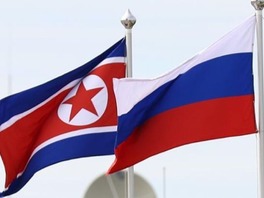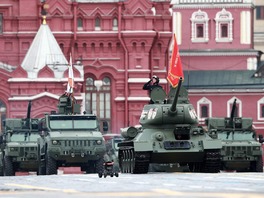Relations between India and Pakistan are strained after a deadly militant attack in Kashmir, raising fears of a new military escalation between the nuclear rivals.
"Apostrophe" will tell you more about this later, citing sources.
Reuters reports that on Friday the Indian army commander will review security measures and visit the site of a deadly attack on tourists in Kashmir earlier this week.
In this regard, let us recall that on Tuesday, April 22, militants of a criminal group attacked tourists in Kashmir, killing 26 people and injuring 17 others. The incident was the worst attack of its kind in the country in almost 20 years.
India has said that Pakistani elements were involved in Tuesday's attack on a meadow in the Pahalgam district, while Islamabad denies any involvement in the attack.
The nuclear powers have taken a series of measures against each other, including India suspending a key agreement on sharing river water and Pakistan closing its airspace to Indian airlines, among other steps.
Reuters also notes that General Upendra Dwivedi, the Indian Army chief, will visit Kashmir on Friday to review security measures and is likely to visit the site of the attack.
India's two leading airlines, IndiGo and Air India, said the closure of Pakistan's airspace would affect some of their international routes, including to the US and Europe, leading to increased flight times and flight rerouting.
There have been calls and fears that India could launch a military strike on Pakistani territory, as it did in 2019 in response to a suicide bombing in Kashmir that killed at least 40 Indian paramilitary police.
Several leaders of Modi's Hindu nationalist party have also called for military action against Pakistan.
Modi himself has vowed to find the militants responsible for the killing of 26 civilians in the popular tourist destination of Pahalgam.
It is worth adding that both countries claim Kashmir, where the majority of the population is Muslim, but partially govern it.
AFP, citing officials, reports that Pakistani and Indian troops exchanged fire overnight across the Line of Control in disputed Kashmir.
The United Nations has called on the nuclear rivals to exercise "maximum restraint" after deadly shootings in the region.
"Sayed Ashfaq Gilani, a Kashmiri government official, said troops exchanged fire along the Line of Control that separates the two countries," the report said.
The Indian army confirmed that there had been limited small arms firing, which it said was "initiated by Pakistan", adding that it had been "effectively responded to".
UN spokesman Stephane Dujarric told reporters in New York that problems between countries "can and must be resolved peacefully through meaningful mutual engagement."
"We strongly urge both governments... to exercise maximum restraint and prevent further deterioration of the situation and developments that we are witnessing," he said.
Russian opposition blogger Dmitry Chernyshev commented on the tense situation surrounding India and Pakistan, noting:
"India has blocked the Indus River towards Pakistan and closed all four locks. It is clear that this is temporary. It is clear that such a huge river cannot be stopped simply because no reservoir capacity will be enough and the locks will soon be opened. But this is a real act of war - in Pakistan, everything depends on water."
He also recalled that during the "Battle for Water", Israel responded harshly to attempts by Syria and Lebanon to divert the waters of the Jordan and leave the country without fresh water.
Finally, he shared his thoughts on the current situation in the world:
"Once upon a time, it seemed to me that Lukashenko was the greatest contraceptive in Europe. Then I thought that Putin was the crown of negative selection and that nothing worse than him would happen to the world. But then Trump came. That's it, no one can surpass him. But now there is a possibility of a full-scale nuclear war on Earth."
Also read in "Apostrophe" how Ukrainian military man and blogger Kyrylo Sazonov refuted the words of US President Donald Trump that Russia's concession to the approach of peace would be the refusal to seize the entire territory of Ukraine.






